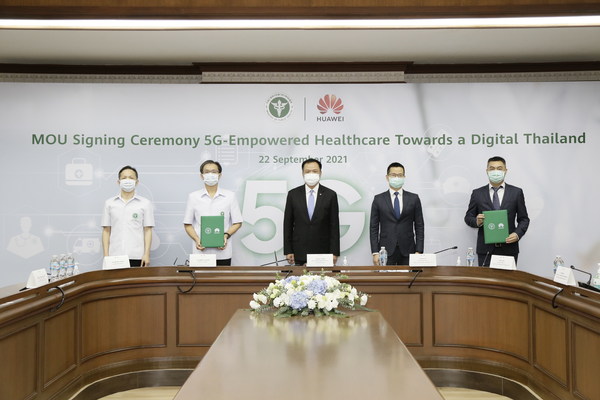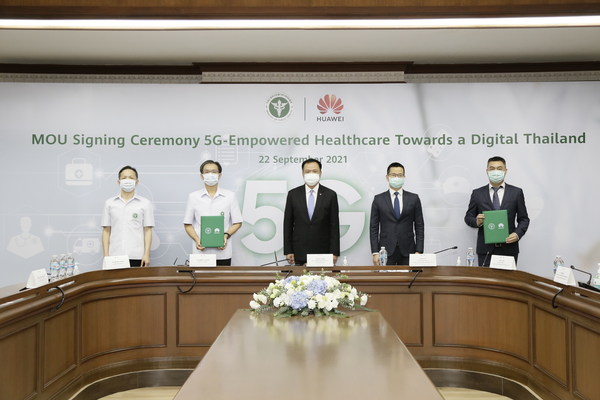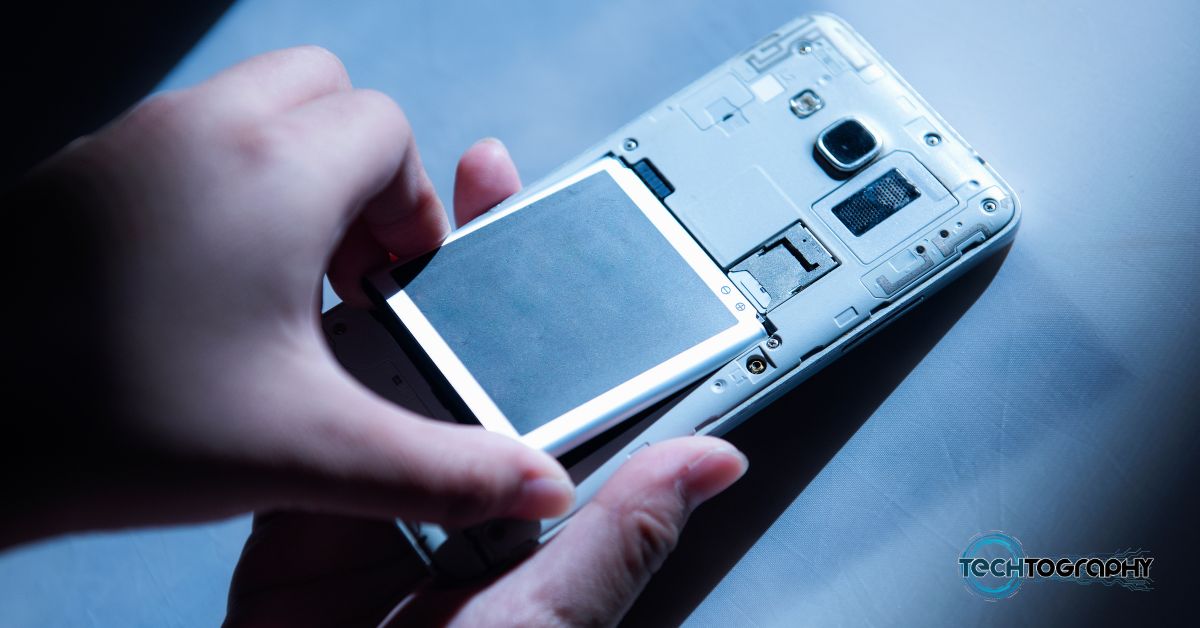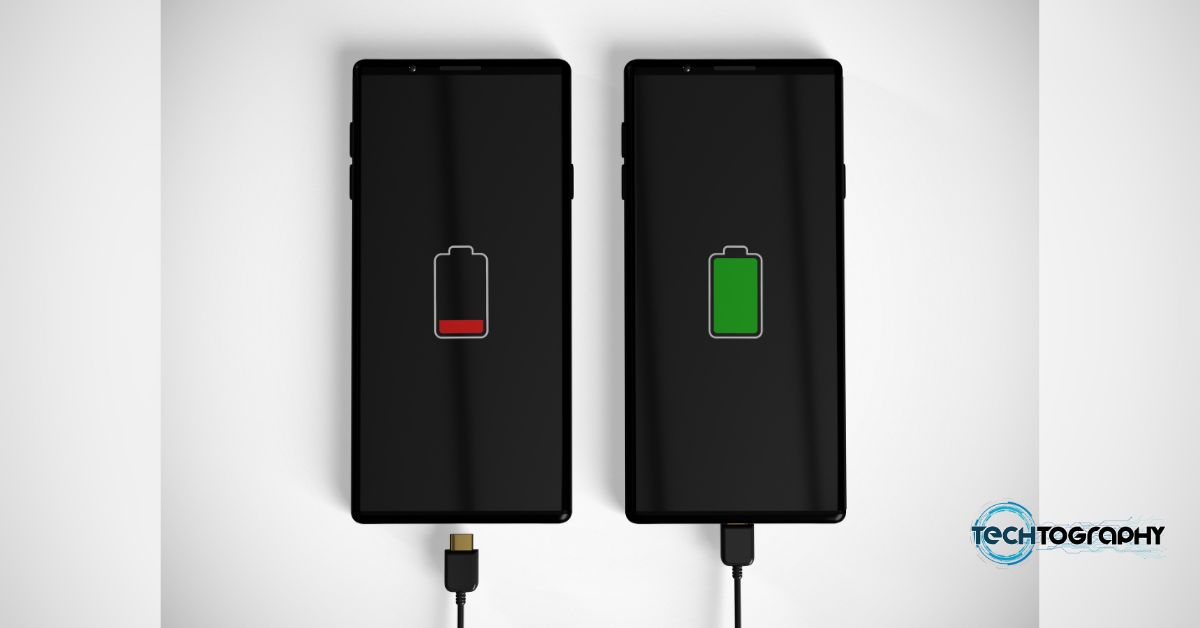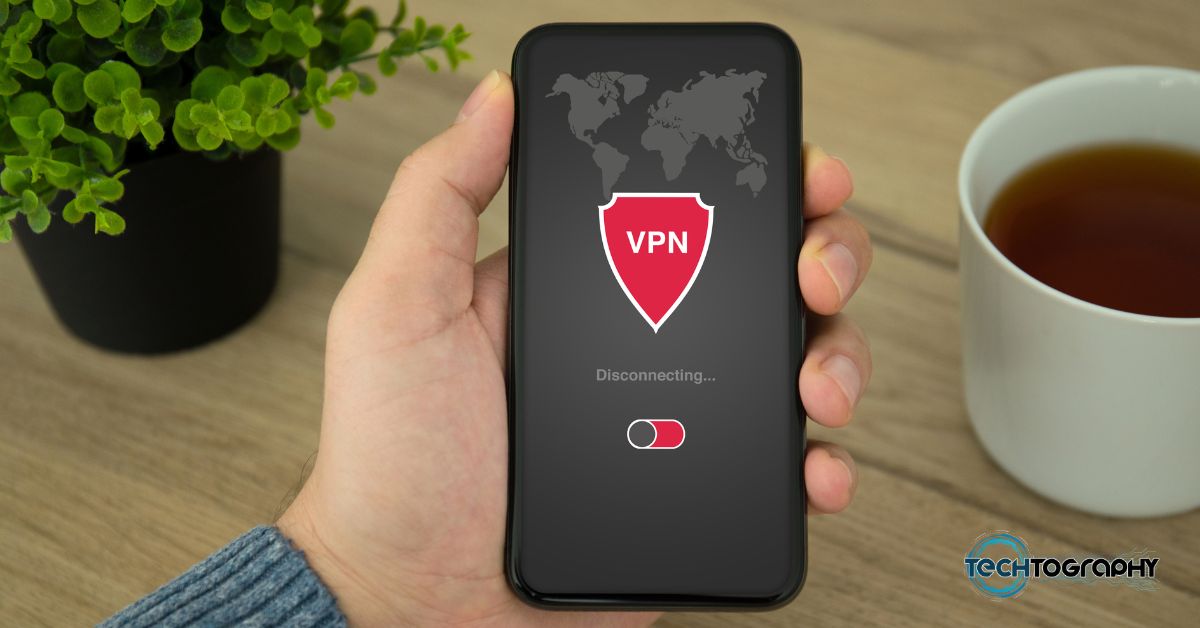BANGKOK, Thailand, Sept. 22, 2021 /PRNewswire/ — Huawei Technologies (Thailand) Co. Ltd. today signed the 5G Empowered Healthcare Towards a Digital Thailand Memorandum of Understanding (MoU) with the Department of Medical Services (DMS) under the Ministry of Public Health (MoPH), to establish a smart platform that will facilitate advanced medical treatment using state-of-the-art digital technology. The MoU signing ceremony was held at the DMS Office, presided by HE Mr. Anutin Charnvirakul, Deputy Prime Minister and Minister of Public Health and Mr. Abel Deng, CEO of Huawei Thailand.
In cooperation with the National Cancer Institute and Rajavithi Hospital, both under the DMS, this initiative aims to increase the efficiency of medical services and operations to improve the quality of healthcare services. During the event, a live demonstration was held to present 5G smart ambulance, 5G Telemedicine and Home Isolation solutions for remote diagnosis and treatment of patients.
During his honorable speech, H.E. Mr. Anutin Charnvirakul stressed on the Ministry’s mission to enhance Thailand’s healthcare system. Through the implementation of ICT technologies, many new services, including Telemedicine, patient queue management, patient information collection using Big Data, were made possible. He commented "We believe that, with advanced ICT equipment, our expertise, and the adoption of 5G technology, we can create equal access to quality and timely healthcare. During the ongoing pandemic where social distancing measures are adopted, the Department of Medical Services and Huawei will jointly explore the benefits of 5G in the healthcare field under this MoU. The joint projects will ensure better health services for Thai people. On this special occasion, I would like to thank Huawei for their support in providing the state-of-the-art equipment and their extensive industry knowledge. My gratitude also goes to the Department of Medical Services for their contribution that led to knowledge transfer in healthcare."
"This MoU is a milestone that will bring rapid advances to medical care in the country," declared Dr Somsak Akksilp, Director General of Department of Medical Services. "It is an honor for the DMS and our carefully selected hospitals to partner with Huawei for a cutting-edge initiative that will raise the level and standards of our hospital services and improve operational efficiency."
Mr. Abel Deng emphasized that "Huawei is proud to team up with the DMS, the National Cancer Institute and Rajavithi Hospital for this pioneer program that will help empower Thailand’s healthcare system. This MoU will contribute to the MoPH’s vision to transform more smart hospitals in the near future." He further added that "During this era of digitalization in the medical field, it is an honor to accompany Thailand as its healthcare sector connects the value of medical care with the patients’ needs. Introducing smart innovations and infrastructure will improve the work of healthcare and medical professionals and the quality of life of the people in urban and rural areas. Huawei continues to push forward digital transformation in Thailand, and bring digital technology to every person, home, and organization for a fully connected, intelligent Thailand."
This MoU comes in response to the DMS’ mission to continuously improve its services and, with the support of Huawei, to introduce enhanced smart services that will apply integrated digital technologies using 5G infrastructure, artificial intelligence (AI), big data and cloud edge computing.
Under this two-year agreement, Huawei will provide 5G technology to the two partner hospitals, enabling the immediate upgrade of their existing infrastructure. It will also provide digital knowledge transfer, training and project supervision to hospital staff to enable them to operate efficiently and sustainably, for the benefit of both medical staff and patients. These technologies will initially be used for telemedicine solutions such as remote monitoring and diagnosis that will help reduce the risk of transmitting infections between doctors and patients significantly. In addition, they will be used for emergency care services such as ambulance transportation, where useful information, such as real-time location, patients’ vital signs and video images are transmitted instantly, enabling rescue doctors to receive guidance for the best emergency care and the hospital team to prepare for treatment or surgery upon arrival.
Huawei remains committed to introducing digital technologies to create a strong, connected healthcare ecosystem that can make the experience better for patients, customers and medical staff, while improving efficiency and reducing costs.
